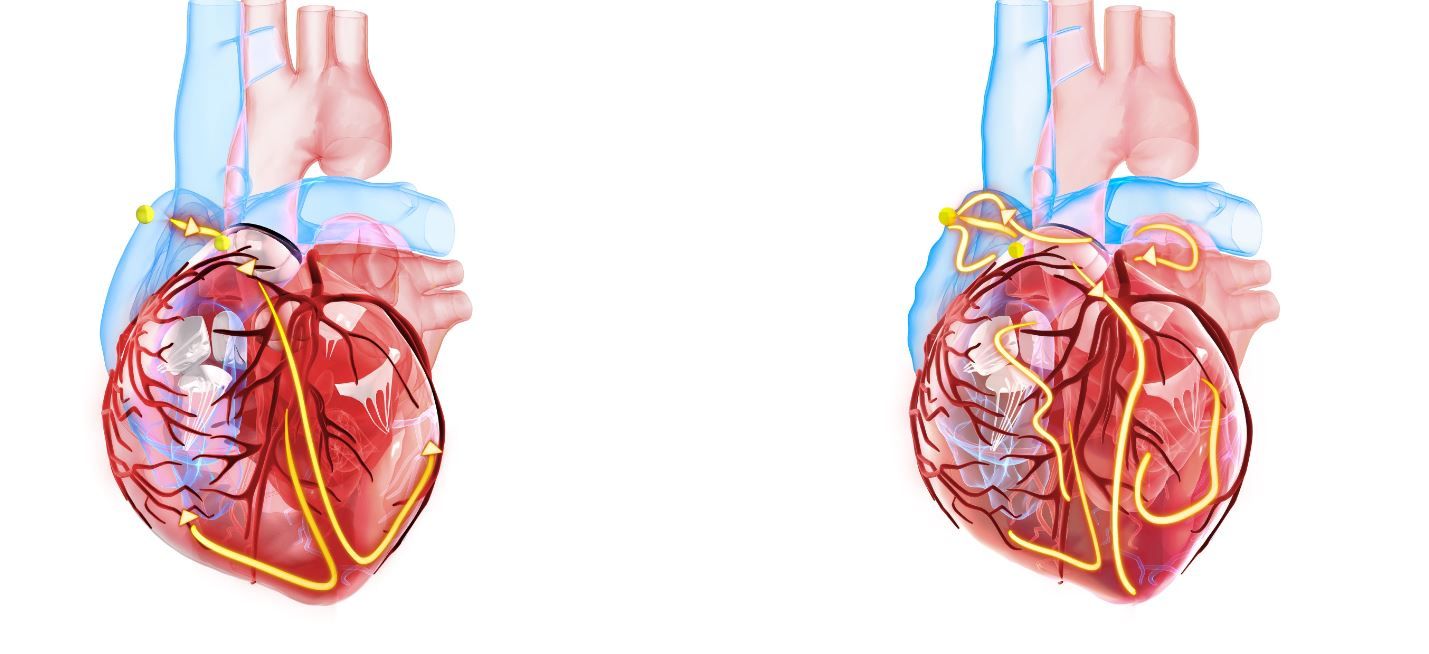- Clinical Technology
- Adult Immunization
- Hepatology
- Pediatric Immunization
- Screening
- Psychiatry
- Allergy
- Women's Health
- Cardiology
- Pediatrics
- Dermatology
- Endocrinology
- Pain Management
- Gastroenterology
- Infectious Disease
- Obesity Medicine
- Rheumatology
- Nephrology
- Neurology
- Pulmonology
Early Rhythm Control May Not be as Effective in Adults with Newly Diagnosed Atrial Fibrillation
Early rhythm control reduced CV complications regardless of AF pattern but for patients with a first AF diagnosis, risks for hospitalization and ACS were higher after early rhythm therapy.

Early rhythm control (ERC), compared with usual care, reduced cardiovascular (CV) complications over 5 years of follow-up in persons with first-diagnosed atrial fibrillation (FDAF), paroxysmal AF (paroxAF), and persistent AF (persAF), according to new research published in the Journal of the American College of Cardiology.
Patients with FDAF were found to be at higher risk for hospitalization and acute coronary syndrome (ACS) than those with paroxAF or persAF, particularly if they were managed with ERC strategies. “Thus, FDAF might serve as a simple biomarker that helps to identify patients at higher risk for ACS and other medical conditions,” stated authors, led by Andreas Goette, MD, of the Department of Cardiology and Intensive Care Medicine at St. Vincenz Hospital in Germany.
Goette and colleagues conducted a prespecified analysis of the EAST-AFNET 4 (Early treatment of atrial fibrillation for stroke prevention) clinical trial. The main results from EAST-AFNET 4 were published October 2020 in The New England Journal of Medicine. Primary findings showed that ERC therapy, which included treatment with antiarrhythmic drugs or AF ablation after randomization, was associated with a lower risk of death from CV causes, stroke, or hospitalization for heart failure (HF) or ACS than usual care over 5.1 years of follow-up.
The current analysis examined the effects of ERC on the first primary outcome, a composite of CV death, stroke, and hospitalization for HF and ACS, and the second primary outcome, the number of nights spent in hospital per year, according to the type of AF at baseline. Changes in health-related quality of life (HRQoL) were assessed by the EQ-5D, according to Goette et al.
Researchers compared 1048 patients in EAST-AFNET 4 with FDAF, 994 with paroxAF, and 743 with persAF. Participants with FDAF were slightly older (aged 71 years, 48% women) than those with paroxAF (aged 70 years, 50% women) and persAF (aged 70 years; 38% women).
Main Findings
Results showed that ERC therapy reduced the primary outcome in all 3 AF pattern groups (interaction P=0.39). Hospitalization for ACS was highest in the FDAF cohort (incidence rate ratio [IRR], 1.50; 95% CI, 0.83-2.69; interaction P=.032) compared with paroxAF (IRR, 0.64; 95% CI, 0.32-1.25) and persAF (IRR, 0.50; 95% CI, 0.25-1.00) cohorts.
Participants with FDAF spent more nights in the hospital (IRR, 1.38; 95% CI, 1.12-1.70; interaction P=.004) than those with paroxAF (IRR, 0.84; 95% CI, 0.67-1.03), and those with persAF (IRR, 1.02; 95% CI, 0.80-1.30). ERC treatment improved HRQoL in patients with paroxAF and persAF, but not in those with FDAF (P=.019), according to the study results.
“This analysis demonstrates the effectiveness of ERC in patients with FDAF, paroxAF, and persAF. It is conceivable that the AF pattern in other studies enrolling patients with a longer AF duration is a proxy for atrial damage or AF duration,” wrote Goette and colleagues. “Whether rhythm control therapy is effective in patients with chronic AF patterns and longer AF duration cannot be deduced from this analysis.”
